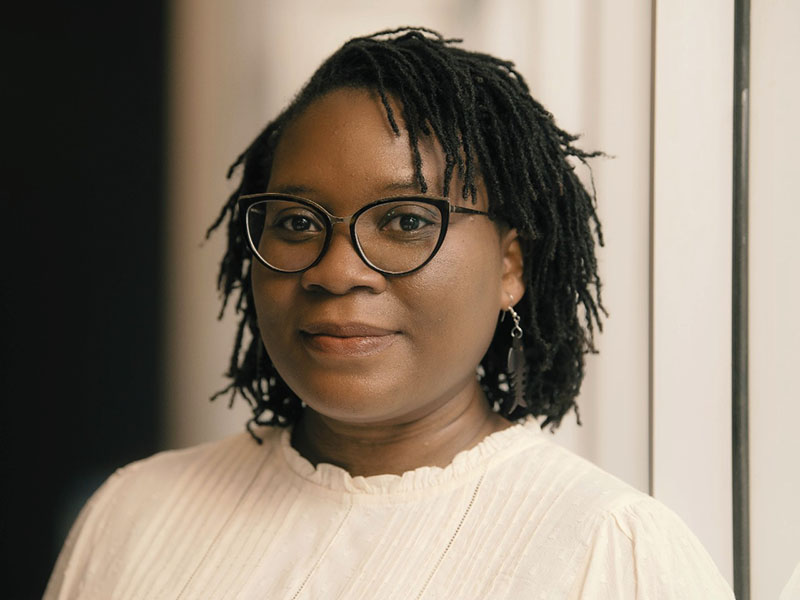Revealing migrant realities

Based on her PhD thesis, Dr. Oreva Olakpe’s new book, South-South Migrations and the Law from Below: Case Studies on China and Nigeria, (external link) explores the narratives of migrants in the Global South and their experiences with international law and informal justice systems.
“My work is influenced by personal encounters with people, how international norms, state practices and international legal decisions affect their everyday lives,” says Dr. Olakpe. “I am also inspired by seeing the world from the view of those around me, and my personal experiences of mobility/immobility as a Nigerian woman.”
What inspires your research?
In my study of international law, the Global South seemed to be often discussed only as places where intervention are made from above or as remote spaces for data collection; people’s experiences didn’t seem to count as a part of what shapes their legal realities. This is why I believe that socio-legal research holds a special place in shedding light on how law affects the experiences of people in the Global South—migrants in particular. In terms of my case study choices, my parents played a significant role in shaping my interests—growing up I would often discuss those cases with my parents who shared their vast knowledge with me.
What do you hope readers will take away from your book?
I hope that the book throws light on how migrants from the Global South forge paths towards justice, the significance of informal communal structures in filling gaps that formal law cannot/will not fill, and the power of law from below in balancing out power asymmetries. Migrant status and perception of “illegality” or vulnerability often eclipses the agency, innovation and the drive of migrants to access justice, recognition and acceptance in the places they migrate to. Finally, I hope readers will see how much identity shapes the legal realities of people and why we must take this into account for better outcomes in law and policy.
“[TMU has been a] great experience, especially because of the richness of the research community, the opportunities for collaboration and the warmness of people I have met during my postdoctoral journey.”
How has your experience been as a TMU postdoctoral fellow?
A great experience, especially because of the richness of the research community, the opportunities for collaboration and the warmness of people I have met during my postdoctoral journey.
How has your relationship been with your supervisor?
It has been a blessing to be part of the CERC Migration program, under Dr. Anna Triandafyllidou. Her foresight and supervision have pushed me to go beyond my comfort zone, opened up so many opportunities for collaborative work across multiple disciplines, and also given me room for flexibility in my work.
How is TMU preparing you to be career-ready?
I have had numerous opportunities to share my research and receive feedback from both peers and advanced scholars, I have also been able to organize or co-chair events where both students and researchers come together to share knowledge. I believe these opportunities are crucial to expanding my academic horizon.
What advice do you have for graduate students?
Your passion for your research topic is what will keep you motivated in the long journey towards your research goals, but a supportive and nurturing community/supervision is essential. Never stop searching for the spaces and people that let you thrive.